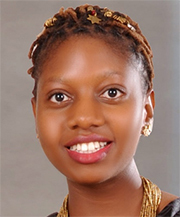Diabetes, the role of society in improving care
As a society, we need to recognise diabetes as a public health problem

By Maureen Nabatanzi
Each year in November, the world unites to raise awareness about diabetes. This year, diabetes awareness month and World Diabetes Day (14th November) were celebrated under the theme, "Family and Diabetes". The key message was recognizing the role of families and society in the management, care, prevention, and education of diabetes. So how do we do this? Society was urged to learn the basics of diabetes.
Diabetes occurs when the pancreas (an organ near the stomach) either produces very little or no insulin or when the body fails to respond to the insulin. Insulin is a hormone that helps our bodies to use and store sugar and fat from the food we eat; our bodies, in turn, rely on this process for energy to remain healthy. There are three main types of diabetes: type 1, type 2, and gestational diabetes. In type 1, the pancreas produces little or no insulin and typically develops in adolescence. In type 2, the pancreas either produces little insulin or the body does not respond to the insulin; this typically develops later in life. Gestational diabetes is diabetes during pregnancy. Although type 1 has genetic roots, type 2 is mainly a consequence of lifestyle factors like being overweight.
As a society, we need to recognise diabetes as a public health problem. According to Uganda's health information system, in 2018 alone, 214,517 people visited the hospital for diabetes treatment as outpatients. However, there is no cure and people with diabetes need to manage their disease to stay healthy. Management varies by type but typically involves giving insulin to prevent high concentrations of sugar in the blood. Another approach is to modify diet and exercise. If left unmanaged, the consistently high blood sugar levels can lead to complications like blindness, amputation, kidney failure, heart attack, and stroke. For example, diabetes retinopathy a diabetes eye disease involving loss of vision affected 6,709 Ugandans in 2018. Given the complexity of diabetes, the focus should be on prevention of occurrence of type 2 and the prevention of complications through appropriate management.
The first step to prevention is to learn the warning signs and symptoms for diabetes. These include: feeling tired all the time, needing to urinate frequently, feeling extreme thirst and having blurred vision. These symptoms may develop in a matter of weeks or days for type 1s but may be mild or take longer among type 2s. Research conducted by the International Diabetes Foundation in 2018 discovered that parents struggle to spot diabetes in their own children. So how can you be sure you or someone you know has diabetes? The answer is screening. Encourage everyone you know to visit a hospital and ask the health worker to check the sugar in their blood. Routine screening contributes to early diagnosis and management which help prevent complications.
What else can society do? We can learn about diabetic care and provide adequate support. For example, type 1s need daily doses of insulin injections. The quantity and frequency of these vary depending on types and quantities of foods eaten. Learning this intricate balance may need one to accompany the person the next time they visit their Doctor and or Nutritionist. In addition, diabetics need to regularly check their blood sugar; having a machine that does this (a glucometer) is helpful. Insulin, the injections and glucometers all cost money. We can involve ourselves in supporting these financial needs.
That is not all, there are special dietary needs in diabetes that can help control blood sugar. This means limiting foods high in sugar like sweet juices (soda is a NO), cakes, and high energy foods like posho, cassava, white bread, and white rice. These need to be balanced with high fibre foods like whole grain bread, millet, vegetables like nakati and proteins like beans, eggs, milk, and yoghurt. People with diabetes will need help getting access to this special diet. Finally, diabetes is challenging and people living with it need love and reassuring. This can be as simple as listening to their day to day struggles and encouraging them.
As society gets more informed about diabetes, we will be better equipped to care for people with diabetes and to support them to live healthy lives free of complications.
The writer is a Field Epidemiology Fellow of the Uganda Public Health Fellowship Program, Ministry of Health